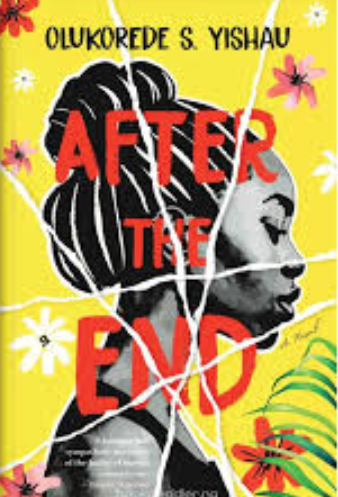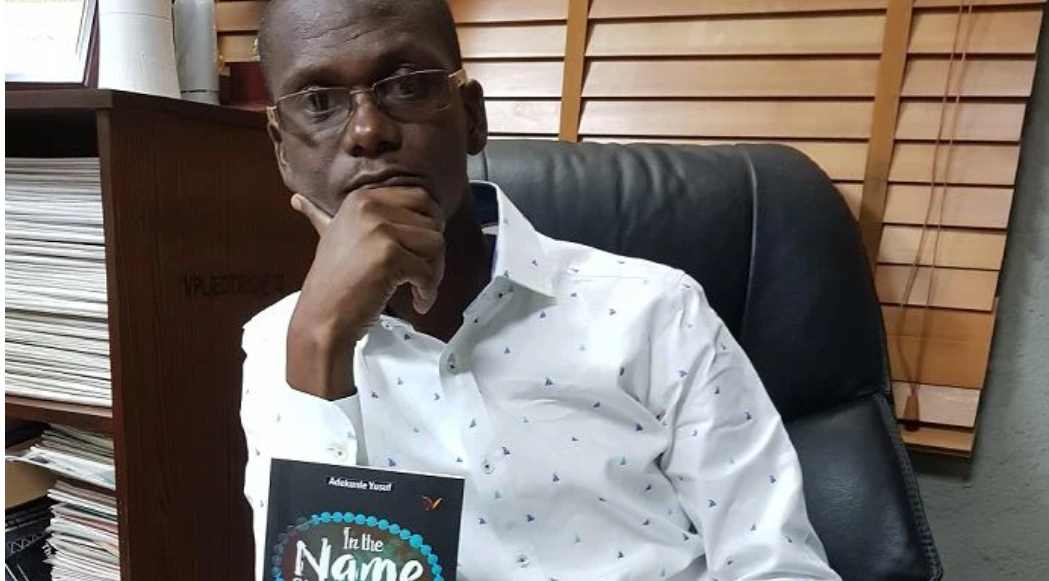Olukorede Yishau is a writer and award-winning Nigerian journalist based in Texas, United States. Yishau’s debut novel, “In The Name of Our Father,” garnered a prestigious nomination for Africa’s biggest literary prize, the Nigeria Prize for Literature, in 2021. Since then, he’s continued to captivate readers with his short story collection, “Vaults of Secrets” (2020), and contributions to anthologies like “Activist Poets” and “COVIK One Nine.” His latest novel, “After The End,” published by Masobe Books, promises another enthralling journey. Yishau’s work has also graced the pages of renowned publications like The Lagos Review, Isele, Please See Me, The Source, TELL and The Nation. In this interview with allnaijadiaspora, Yishau speaks about his life as a writer and offers insights into his highly anticipated novel. Excerpts:
Congratulations on the release of your new book, “After the End”! What drove you to write this particular book?
In 2018, after the release of my first novel, I was reading Chimamanda Ngozi Adichie’s ‘Americanah’ and this idea of doing a novel built around one of Williams Shakespeare’s many popular quotes, “the evil that men do lives after them…”, came to me and I jumped off my bed in my then Maryland apartment and started working on this novel set in the United Kingdom and Nigeria, which explores the fact that the end, most times, isn’t the end, but another beginning.
As a journalist with a demanding career, how do you manage to balance your writing with your professional responsibilities?
I think the best way to answer this is to say when you love something you will always create time for it. I remember that when I was working on this novel, I used to write as soon as I woke up. When I was ready for the office, I would save it on a flash drive, take it to the office and when I had free time, I would write again and save on a flash drive and take home and write again before sleeping. I always utilise every available second to work on my creative writing. Anything you love, you’ll always create time for and writing is such that when you need to do it, you must because if not, peace will elude you.
Being nominated for the nation’s biggest literary prize, the NLNG Prize, must be a significant achievement. How has this recognition influenced your journey as a writer?
It certainly has drawn more attention to my writing and has made me take my writing more serious because being on such a list will make critics want to scrutinise whatever book I publish after being on the list.
Having lived and worked in Nigeria, what aspects of the country do you find particularly intriguing or captivating when compared to other places?
I have always seen Nigeria, especially Lagos, as my home and every other place as a bus stop. Despite how chaotic life is in Nigeria, it remains dear to my heart and I will always be proud to be a Nigerian. It is a country that has soul, people look out for one another; we are our brothers’ keepers. It is not like that in the West, where the mantra is to your tent oh Israel and everyone is for himself and God for us all. I also love our food, our culture, our determination, our strength amid challenges. In other places, people break down easily but an average Nigerian has the capacity to withstand adversities and eventually surmount them.
You’ve successfully merged your career in journalism with storytelling. Where do you draw inspiration from, and do you have any mentors guiding you in this dual path?
I started my journalism career doing long-form reporting or what used to be called New Journalism, where we presented news with back-grounding and atmospherics. These features are essential in storytelling so it wasn’t difficult for me to veer into creative writing. For journalism, I have mentors too numerous to mention and for creative writing, I have been inspired by the writings Malik Nwosu, Chinua Achebe and others.
You had a successful career as an award-winning journalist in Nigeria. What prompted your decision to relocate to the US?
This question is very easy to answer: I moved because of family. For years, I was the only one left at home.
How does your background in journalism influence your writing style and the themes you explore in your book? Do you find parallels between the real-world events you cover and the fictional narratives you create?
There is absolutely no doubt that my journalism reflects in my creative writing. Two of the main characters in my two novels are journalists. The real-world events that I cover and my fictional narratives have a convergence point. In fact, in my first novel, I used a lot of information I got as a journalist as fictional material. Like journalism, literary fiction also involves a lot of research so the points of convergence are more than many think.
As a journalist, accuracy is paramount. How does your approach to truth differ when writing fiction?

The approach is almost the same because with fiction if you need to describe a scene in the hospital, it must be accurate just the way you’ll do in journalism. If you are writing fiction and dealing with health issues, you must be accurate. Perspectives matters in both journalism and fiction writing.
What advice do you have for aspiring journalists who also have a passion for storytelling?
My advice is simple: Read, read, read, read, read and read and then write, write, write, write and write. They should also study the works of masters because that is the best way to learn a craft.
If you could recommend one book that has greatly influenced your work as both a journalist and storyteller, what would it be and why?
The truth is that there is not one single book that has influenced my work as a journalist and storyteller. Several books too numerous to mention have influenced my writing career.
With your keen journalistic perspective, what are some of the issues that occupy your thoughts when considering Nigerians living in the diaspora?
I remain concerned about the role corruption is playing in the underdevelopment of our country. I am also concerned about the leaders and the led. We all know our leaders are dealers but we as a people also have contributed to the country’s backwardness.
Things we don’t do overseas we do them back home. We all need to play our roles so that our country can become a First World, our hospitals will be some of the best, our schools will attract international studies, investors will be falling over themselves to be part of our economy and our currency will be one of the most valued and of course, when you say, you are a Nigerian, foreigners will doff their hats.
First published in: https://allnaijadiaspora.com/why-i-wrote-my-new-book-after-the-end-us-based-author-olukorede-yishau/?amp=1





